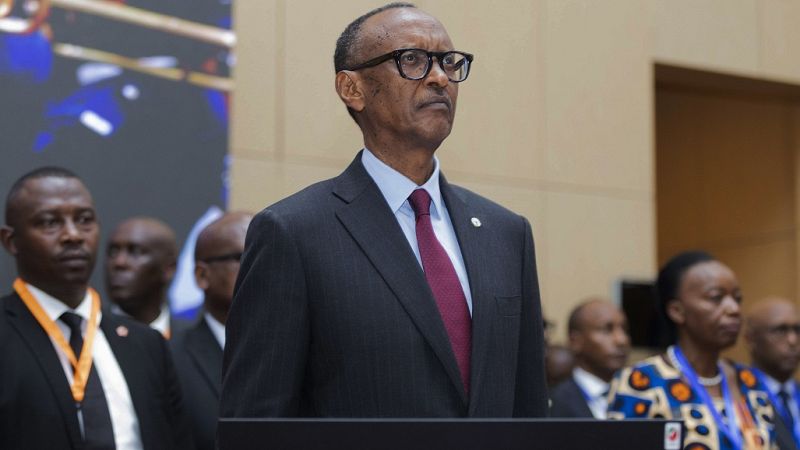EAC-SADC summit sparks different reactions in Kigali and Kinshasa

During a joint EAC-SADC summit, leaders of both organizations called for immediate and unconditional ceasefire. Rwandan authorities welcomed the meeting's conclusions, but Kinshasa showed more vigilance due to the absence of Kigali's condemnation for his involvement in the conflict, and the end of hostilities in the RDC.
In the aftermath of the joint EAC-SADC summit, during which leaders called for an "immediate and unconditional ceasefire" and an end to hostilities in eastern DRC on Saturday, February 8, Rwandan authorities reacted favorably to the meeting's results.
Conversely, Kinshasa is disappointed by the lack of condemnation directed at Kigali regarding its involvement in the conflict and is adopting a more cautious approach.
According to Rwandan Foreign Minister Olivier Nduhungirehe, this meeting is a "historic and successful" summit that offers "immediate, medium, and long-term measures for restoring peace and security in eastern DRC."
On national television, he expressed satisfaction with the call for an immediate ceasefire and the resolutions from both blocs, which align with Kigali's stance prior to the summit.
While the Rwandan government has been advocating for direct "dialogue" between the M23 and Congolese authorities, the two regional organizations have indeed called for negotiations among all conflict parties, including the armed group, as part of the integrated processes from Luanda and Nairobi.
Rwanda is pleased that it has not faced condemnation for its involvement in the conflict.
At the summit in Dar es Salaam, leaders from East and Southern Africa only reiterated their backing for the DRC's sovereignty, calling for a framework to facilitate the withdrawal of uninvited foreign troops from Congolese territory.
On the other hand, Kinshasa desired a stronger response from the EAC and SADC.
"We understand that in such summits, language is carefully selected. We are very disappointed because this is about the lives of thousands of Congolese," remarked Tina Salama, spokesperson for President Félix Tshisekedi.
"The aggression from Rwanda is clear and has persisted for thirty years. Yet, we do not lose hope; we believe that progress is being made," she noted.
During a mass at the Notre-Dame Cathedral of Congo in Kinshasa on Sunday, February 9, Cardinal Fridolin Ambongo called for a return to peace in the country.
This ceremony was highly anticipated as it marked the cardinal's first mass since the M23 offensive in Goma and the involvement of Rwandan troops.
In his 30-minute homily, Cardinal Ambongo addressed the ongoing war in the eastern region.
"Our nation is in danger. Every minute is critical. We must not waste time if we want to save Congo," he stated, urging Congolese people to reject divisive and aggressive rhetoric and to support the initiative proposed by Catholic and Protestant churches to the head of state.
This initiative aims to engage in dialogue with all parties involved in the conflict, including the M23, which is backed by Rwanda.
"Dialogue is key," emphasized Cardinal Ambongo, adding, "even with those we consider our enemies," a statement that stirred murmurs among some parishioners.
The cardinal also directed a message to the international community, urging it to take action beyond mere condemnations.
The Minister of Justice, Constant Moutambo, attended the mass, along with the European Union ambassador to the DRC, Nicolas Berlanga.
Today

